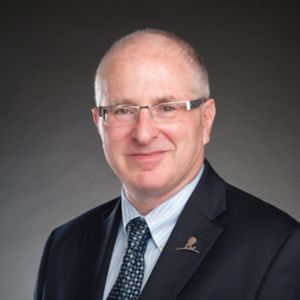St. Jude Family of Websites
Explore our cutting edge research, world-class patient care, career opportunities and more.
St. Jude Children's Research Hospital Home

- Fundraising
St. Jude Family of Websites
Explore our cutting edge research, world-class patient care, career opportunities and more.
St. Jude Children's Research Hospital Home

- Fundraising
ASH 2017: Learning, networking and recruiting at the annual hematology meeting
Mitchell Weiss, MD, PhD, Chair of the St. Jude Hematology Department, attended the American Society of Hematology’s (ASH) Annual Meeting & Exposition in Atlanta, Georgia.
I always look forward to ASH, and this year was no different. There have been many exciting presentations and abstracts in various fields of hematology during this year's annual meeting.
There is research on potential new therapies for non-malignant hematological diseases, including sickle cell anemia and thalessemia. I had a chance to learn more about several experimental drugs, and the work being done in gene therapy that was presented this year looks very interesting. There have been a number of talks on the use of gene therapy in hemophilia (Abstracts 603 and 604), SCID (Abstract 523) and sickle cell (Abstract 527).
ASH is also a good opportunity to learn more about improving care of delivery to patients, as well as basic and translational hematology research. I was able to attend a few research talks where they discussed new approaches in the laboratory. I'm eager to get back and use that new knowledge to help us refine some of our current experiments.
One of our staff scientists, Christophe Lechauve, PhD, presented basic research on beta thalassemia during the oral asbstract session on thalassemia and globin gene regulation (Abstract 285). A newly identified enzyme, Ulk1, was found to help red blood cells eliminate excess alpha globin. This is one of the protein chains that make up hemoglobin. Excess alpha globin kills red blood cells and can cause conditions like anemia and beta thalassemia. Ulk1 can be increased by administering an FDA-approved drug. This research could possibly open up new strategies to treat beta thalassemia.
I also gave an educational talk on genome editing strategies to treat beta-hemoglobulinopathies, as well as took time to network with colleagues and interview potential faculty members for our department. Overall, it's a very large conference and there really is something for anyone interested in the field of hematology.
Christophe Lechauve, PhD, presented research on beta thalassemia during the oral abstract session on thalassemia and globin gene regulation.






